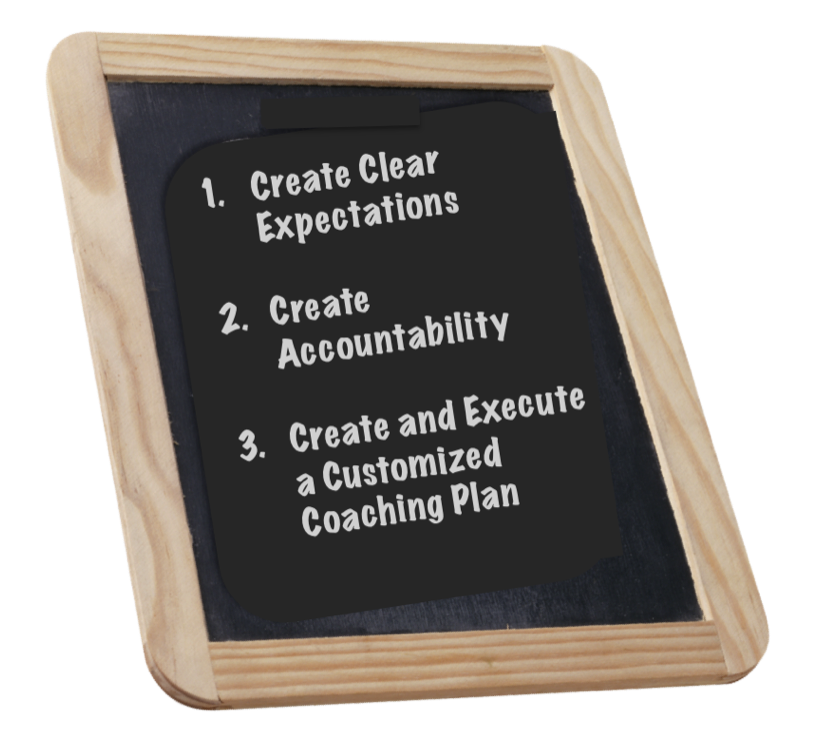Our Clients often tell us that Talent Managment is one of their biggest challenges. A large contributor to this challenge is a lack of accountability created by little to no feedback.
Talent management has many parts and stages, but always begins with proper onboarding. The onboarding starts during the hiring process when you start building expectations of the job. During the interview process you should begin identifying specifically what the job requires and creating a mindset of what they will be expected to do. This is also essential with existing team members - both high and low performers. Team members need to have a baseline to which their performance is measured by them and management.
Here are 3 steps to effective onboarding and coaching:
Create clear expectations: Too often we see managers that basically hand over a rough job description and expect the new team member to interpret it the way that the manager does. Unless your new team member is telepathic – assuming they will understand it like you intend it will not likely work out well for either of you.
Not setting clear expectations for existing team members can lead to frustration and resentment for one or both parties. How can you expect them to perform well if they do not know what it is that they should be performing?
what it is that they should be performing?
During the onboarding (and also the interview process) you should make crystal clear what is expected of your new team member. I recommend sharing this information via email or written so that you can refer back to it as needed.
Clearly describe the activities. What is the specific action to be taken? How is this to be done? What tools should be used? When is this activity to be completed?
What type of reporting do you require? What should this contain? When should it be sent and to whom?
Create accountability: Provide feedback on the expectations that have been set. Do not wait for a quarterly or annual review. Create fast feedback loops to provide critical observations and advice on a weekly or monthly basis.
We have found the Rainmaker 3-3-1 process to be very effective in creating a safe environment to identify how things are going and how team members feel things are going. Since this is more of an objective approach it is easier to take issue with the problem, rather than attacking the person.
The Rainmaker 3-3-1 is very simple:
- What are 3 things going well?
- What are three things not going well or that can be improved?
- What is one thing that you need help with?
You can also include 1-3 committements that you will make between now and the next 3-3-1. We recommend holding a 3-3-1 dialogue monthly at minimum.
Without the use of fast (not annual) and regular feedback loops, you may only hear about an issue when it is too late. With the Rainmaker 3-3-1 process you will have a better “ear to the ground” on what is really going on and will be able to address issues before they become bad habits.
Create and execute a customized coaching plan: You’ve created clear expectations, you’ve provided feedback about how those expectations are or are not being met, and now its time to make a plan to keep on track.
Developing and executing a coaching plan goes hand-in-hand with creating accountability – so you can use the same 3-3-1 format for this. By having an open dialogue around what is going well, what is not going well, what you need help with, and creating commitments from one 3-3-1 to the next; you can ensure that you and your team members are in alignment.
Review the previous 3-3-1’s to ensure that what was going well is still going well and that what was not going well has improved.
Holding team members accountable should be a norm – as well as team members holding you accountable. If you do not do what you say you will do, you lose credibility.
You should follow these steps to get your new sales team members performing at their best as quickly as possible.
Caution: The Rainmaker 3-3-1 Feedback Process should be a support to your other communication, NOT the only avenue for communication and feedback.




